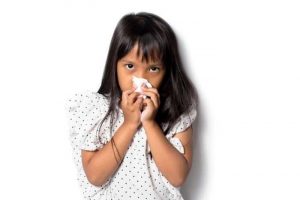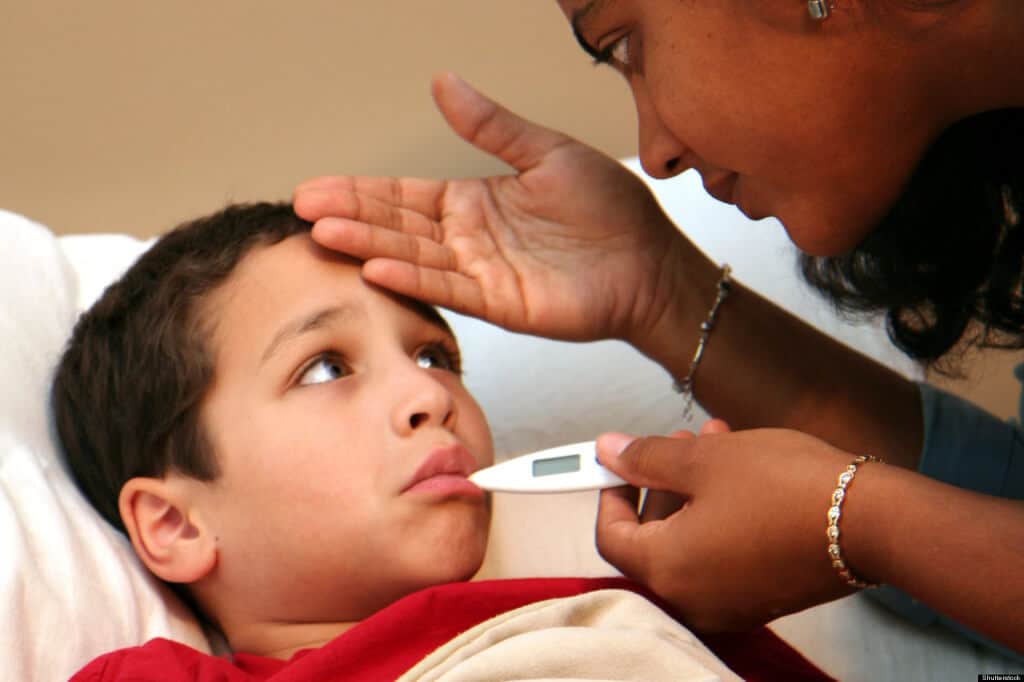How to Stop a Runny Nose at Home
A runny nose is one of the problems that every person faces, and the causes of the runny nose are different, and there are different home remedies for it.
Causes of runny nose and ways to treat it at all ages
A runny nose is caused by excessive dryness of the nasal tissues and adjacent walls and blood vessels of the nose. This dryness may be somewhere between a clear liquid or a thick piece of the nasal mucosa. A runny nose may be from the nose, bottom, back of the throat, or both. The terms “rhinorrhea” and “rhinitis” are often used to refer to a runny nose. Although it speaks of the severity of this complication, rhinorrhea refers to a mild and relatively clear discharge. Rhinitis contributes to inflammation of the nasal tissues, which for various reasons usually occurs due to a runny nose. Nasal congestion may or may not be associated with a runny nose. This was a prelude to a thorough investigation of the causes of runny nose and ways to treat it.
Causes of runny nose
- Acute sinusitis (sinus infection)
- Allergies
- Churg-Strauss syndrome
- a cold
- Excessive use of nasal spray
- Reverse septum
- Drug addiction
- Dry weather
- Wegener granulomatosis
- Hormonal changes
- Flu
- The foreign body inside the nose
- medicines
- Nasal polyps
- Non-allergic rhinitis (chronic cramping or sneezing is not related to allergies)
- Advanced Asthma
- Pregnancy
- Respiratory Sensitive Virus (RSV)
- Spinal fluid leakage
- smoking

Ten home remedies for runny nose in children and adults
Rinsing with salt water, the best treatment for a runny nose
For adults or children, rinsing with salt water is one of the best home remedies to prevent a runny nose. Rinsing with salt water helps to remove mucus and drain it easily. This will even open the nasal cavities completely and help your baby breathe.
Method:
- Prepare the brine solution by mixing one teaspoon of table salt in a cup of boiled water to room temperature.
- While bending your baby’s head back, drop a few drops into one of the nostrils.
- Immediately remove excess fluid using a syringe and place one finger on the other finger.
- Repeat this procedure with the other nostril.
- Use this treatment up to 3 times a day, no more; if it is difficult for you to do it alone, be sure to seek help from others.
Steam is a safe way to treat runny noses in children
Inhaling steam helps reduce the discomfort caused by a runny nose. This mucus causes excessive sneezing. It also helps the child sleep better and speeds up the recovery process.
For very young children:
Turn the bathroom into a steam room and heat it completely by closing the door and opening the shower. Take your baby to the bathroom and sit with your baby 2 to 3 times a day for 10 to 15 minutes.
For older children:
You can use the steam directly on the face by placing the baby in your arms, placing a bowl of hot water in front of it, and tilting the baby’s face towards the bowl.
Collect all the steam with a large towel and ask your child to breathe for 5 to 10 minutes in this position, then ask him to empty his nose several times a day.
Home treatment of runny nose in infants, children, and adults with eucalyptus oil
Eucalyptus can also help reduce runny nose and related symptoms in children. Eucalyptus acts as an anticoagulant that makes it easier to empty the baby’s nasal mucosa.
For adults, using steamed eucalyptus is a good way for children. As we said, this oil will be effective.
Great version for young children and children
Pour 4 or 5 drops of eucalyptus oil in warm bath water for your baby and let the baby enjoy bathing for 10 minutes, do this twice a day.
Also, mix ten drops of eucalyptus essential oil in 2 cups of pure olive oil. Massage your baby’s breasts with this miraculous oil. Do this before bed.
Basil Treatment of runny nose with traditional medicine
Another herbal remedy for a runny nose is basil. This plant has antibacterial, antifungal, and antiviral properties that help fight runny noses and increase your baby’s immunity. Eating a few basils leaves a day will be very helpful; for older children, give them fresh basil leaves every morning before breakfast and night before bed.
Another way for adults: Prepare one tablespoon of fresh basil leaf juice. Mix basil juice with equal amounts of ginger juice, lemon juice, and honey. Take this mixture 2 or 3 times a day.
Honey is a powerful and excellent treatment for runny nose caused by colds
Honey is another effective medicine for treating runny noses in children two years or older. Remember that honey should not be used on young children as it may cause bacteria that cause botulism. The sedative, antibacterial and antiviral properties of honey reduce the various symptoms of runny nose and even help treat coughs and sore throats.
Mixing 1 to 2 teaspoons of honey in a glass of warm water and drinking it once or twice a day can be helpful.
Also, mix one tablespoon of honey and one teaspoon of fresh lemon juice in a glass of warm water and use it warm for your baby twice a day.
Chamomile to treat runny nose, allergies
For babies at least one-year-old, eating chamomile can relieve the symptoms and discomfort of a runny nose. This plant strengthens the immune system due to its excellent antihistamines and also reduces sneezing.
But for older children: Pour one teaspoon of chamomile flowers in 2 cups of boiling water. Put the lid on and let it brew for 5 minutes; add honey. Give this tea to your sick child twice a day.
Hot Chicken Soup
For children over one year old, chicken soup helps reduce the pain of a runny nose. Chicken soup improves the function of the immune system and even prevents upper respiratory tract infections. In addition, chicken soup is light and nutritious for sick children.
Sponge bath
If your child has a low body temperature and a runny nose, bathe him with a sponge to regulate his body temperature. The sponge bath also helps your baby relax and speed up the healing process. For children under one year, take a bath 2 to 3 times a day.
Soak a bath towel at room temperature, take extra water and then rub it under your armpits, legs, arms, and groin. For older children, a cool bath once or twice a day can be helpful.
Tip: Avoid using very cold water, as it may increase the temperature inside the body.
Drink more fluids
Give plenty of fluids to prevent dehydration. Complete hydration of the baby is important to prevent nasal discharge from drying out and clogging the nasal cavity, making coughing easier for children. If your baby is still an infant, breastfeeding is a good option. You can also give her supplements as well as your milk. For older children, make plain water, diluted fruit juice, or gelatinous flavored water.

Use safe cold therapy steam to relieve runny nose
Ask your child to inflate their nose at regular intervals to get rid of the nasal mucosa. Always clean your baby’s nose with a soft cloth to prevent skin irritation. To prevent redness of the skin, put some jelly or olive oil under your baby’s nose.
Do not expose your child to irritants or allergens such as insects, pests, dust, chemical gases, and cigarettes.
When sleeping, place the baby’s head slightly above his body. Do not use pillows to do this. For example, you can use a folded dress.
Do not give your child fatty or heavy foods.
Keep your baby’s room warm and covered.
Also, try to put your baby in a rocking chair to make him feel good.
Home and natural treatment of runny nose during pregnancy
Saltwater as a tropical solution
Pour 1/4 teaspoon of salt in 250 ml of warm water.
Gargle whenever you need to during the day.
Caution:
Be careful of water temperature. Too much hot water may burn your throat.
A soothing drink
Lemon juice helps expel toxins from your body, while honey acts as an antiseptic and helps relieve sore throats.
Preparation method:
A tablespoon of honey and water, half a lemon in a glass of warm water, drink three times a day if necessary, be careful not to lose too much water. Fluid intake is very important for pregnant women because it helps maintain high blood volume in the body.
How to do:
Drink water regularly, even when you are not thirsty.
A runny nose can be annoying and uncomfortable, but it usually clears the nose. A runny nose can sometimes be a sign of a more serious problem and is dangerous in infants.
When is runny nose dangerous?
adults
If:
- Your symptoms lasted more than ten days.
- You have a fever, your nose is yellow and green, and sinus pain or fever. This may be a sign of a bacterial infection.
- There is bleeding in your nasal passages, or it is secreted regularly after a blow to the head.

Children
Contact your child’s doctor:
- If your baby is less than two months old and has a fever.
- Runny or stuffy nose can make it difficult to take care of your baby and make it difficult for him to breathe.
Follow these simple steps to relieve your symptoms until you see your doctor:
- Inflate your nose gently and drain it.
- Avoid known allergic agents.
- Suppose the infection is a persistent, watery discharge. In that case, especially if it is accompanied by sneezing and itchy eyes, your symptoms may be related to allergies, and a non-disinfectant antihistamine may help.
- Be sure to follow the medication instructions exactly.
- Use nasal syringes for infants and young children.
Do the following after giving birth, especially when too much mucus builds up in the back of your throat:
- Avoid common stimuli, such as; Cigarette smoke and sudden changes in humidity.
- Drink plenty of water
- Rinse your nose and throat with a gentle gargle and saltwater


